Review for When Taekwondo Strikes
Introduction
I had to go online to search just how many Korean martial arts there are. Last time I saw an Angela Mao movie, it was Hapkido, in which Angela Mao, Carter Wong, and Sammo Hung attempted to proliferate the titular Korean martial art against the dictates of the Japanese occupation. It didn’t end well for Sammo Hung’s character, who didn’t survive till the end credits. That may explain, given that Angela Mao and Carter Wong are trying again, this time with the Korean martial art of Taekwondo, that Sammo Hung has switched sides to the bad guys. Depending on just how many Korean fighting disciplines there are, this could be an extensive series of movies...
Set during the Japanese occupation of Korea and Manchuria, the occupiers crack down on all potential dissent, especially the local martial arts disciplines. Master practitioner of Taekwondo, Li Jun-Tung is wanted as the head of the resistance movement. When one of his disciples, Zheng-zi, investigating the kidnapping of local girls to be used as comfort women, is chased by the Japanese into a local church, his cover is blown, and the resident French priest is implicated and captured. The priest’s niece Mary is also one of Li’s students, and she and Zheng are determined to rescue her uncle, but it’s too dangerous, as Li learns when he turns to Chinese expat and hapkido practitioner Huang for help.
The Disc
When Taekwondo Strikes gets a 2.39:1 widescreen 1080p transfer with PCM 2.0 English and Mandarin mono audio, with optional English subtitles. The film dates from 1973, and you can tell so from the vintage Golden Harvest logo. But you can’t really tell from the film itself, which has been restored up a treat for Blu-ray presentation. The image is clear and sharp with rich, consistent colours. There are no signs of age or compression, and the print is clean. The film is presented with excellent clarity and detail; so much so that the recycled sets are all the more obvious (an inn and street in Korea looks almost exactly like an inn and street in Manchuria). The action comes across well; and it’s worth noting the previous UK releases were cut. The audio is great, resonant and impactful when it needs to be, with the occasional bit of funk for the music, even with a mono presentation. The subtitles are accurately timed and free of typos.
Extras
The disc boots to a static menu and you’ll get the following extras.
Audio commentary with Samm Deighan
The Best of The Martial Arts Films (91:15)
Interview with Billy Chan (21:00)
Original Theatrical Trailer (3:55)
US Trailer #1 (1:27)
US Trailer #2 (2:56)
UK Trailer (3:34)
The Best of The Martial Arts Films looks substantial. It’s a documentary from 1990, presented by actor John Saxon that looks at martial arts cinema to that point. There is a heavy focus on the films from Golden Harvest, with a whole lot of fight sequences without context, and the occasional interview with actors like Jackie Chan, Sammo Hung and Cynthia Rothrock. It’s pretty light stuff, and were it not for the occasional clip from outside of the studio, I would have called it a feature length trailer for Golden Harvest.
Conclusion
You can hear in the extras how back in the seventies, there were mostly two kinds of martial arts movies. The first kind is the typical conflict between rival schools of kung fu. The other kind is a higher stakes story, using the history of the Japanese occupation in the first half of the 20th Century to motivate its characters. We’re talking freedom fighters standing strong against impossible odds, and that’s a kind of storytelling with clearly defined heroes and villains, that can be very appealing to audiences.
Actually Hapkido was a compromise between both approaches, set during the Japanese occupation of Korea, but still set up as a conflict between two schools of Martial Arts; the underground Hapkido school and a Japanese karate school. When Taekwondo Strikes is a little more straightforward. The Taekwondo students of master Li Jun-Tung are still learning in secret, but the Yokoyama Karate School is explicitly established as a front for Japanese intelligence, and its disciples serve as the secret police in town, throwing their weight around, and ‘arresting’ people at their whim, for interrogation, torture and worse. They don’t even respect diplomatic protocols, which leads them to victimise a French priest and his congregation when they are searching for Korean rebels hiding in the church.
It usually seems like hypocrisy when a master counsels ultimate restraint when students are provoked by rival schools, but when the context is a military occupation, it finally makes sense when Li Jun-Tung tells his students to turn the other cheek, and to be more circumspect when provoked. When the priest is taken for interrogation, Li actually turns to Huang for help rather than his students, to discreetly take a look around the church to see what has happened. But when the Japanese are there, stereotypically lecherous as such films demand, she gets pulled into the conflict anyway, and the violence just escalates.
I didn’t exactly enjoy Hapkido when I reviewed the Blu-ray, but When Taekwondo Strikes does a lot better with a similar story. It’s more effective in setting the stakes, the characters are more interesting, even if the villains are comically malicious. Most importantly, the action is really well choreographed, inventive and impactful. When Taekwondo Strikes gets an excellent transfer on this disc from Eureka Entertainment, and while the added documentary plays like an extended commercial, it’s fair to assume that no one has seen it in HD before the release of this disc.
When Taekwondo Strikes is available directly from Eureka Entertainment, from Terracotta, and from mainstream retailers.
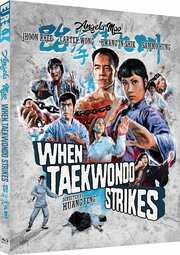





























































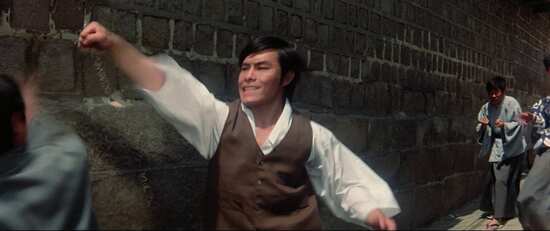
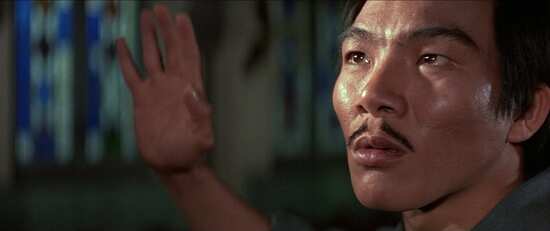
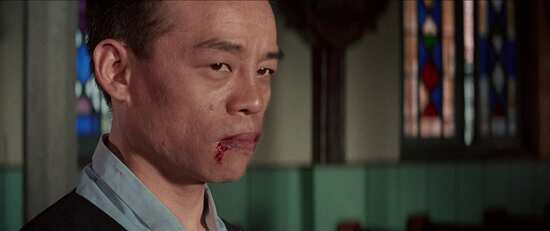

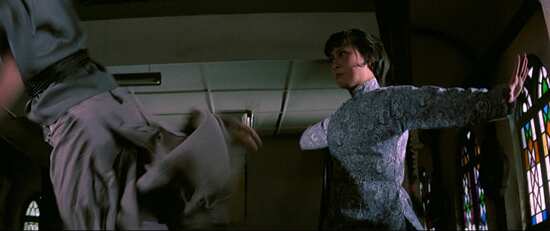
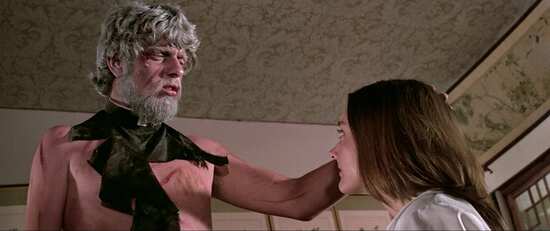
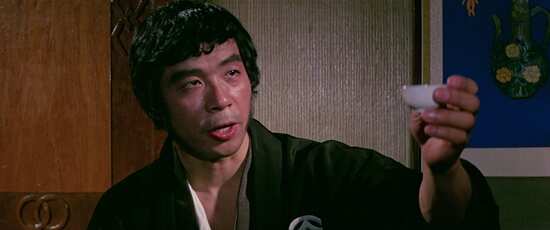
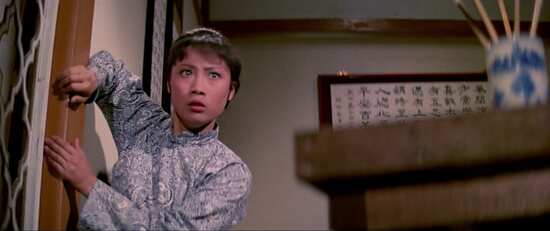
Your Opinions and Comments
Be the first to post a comment!